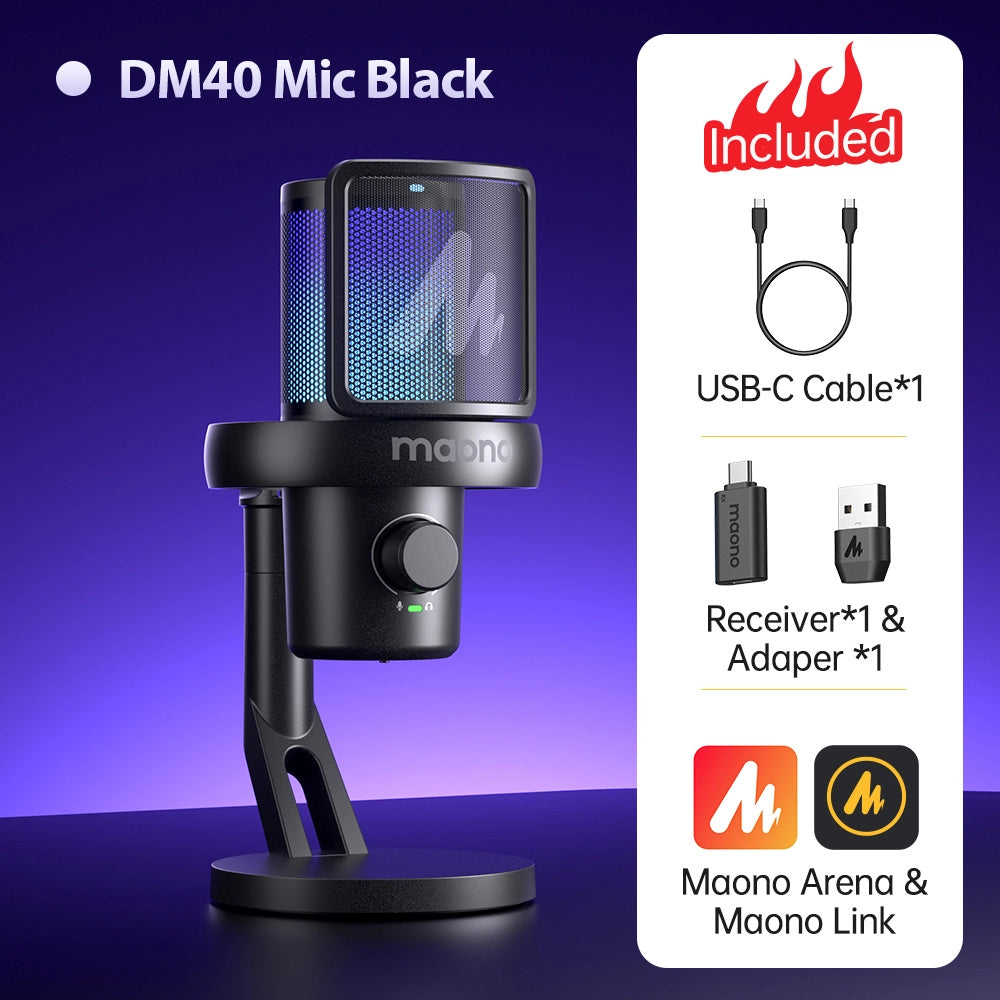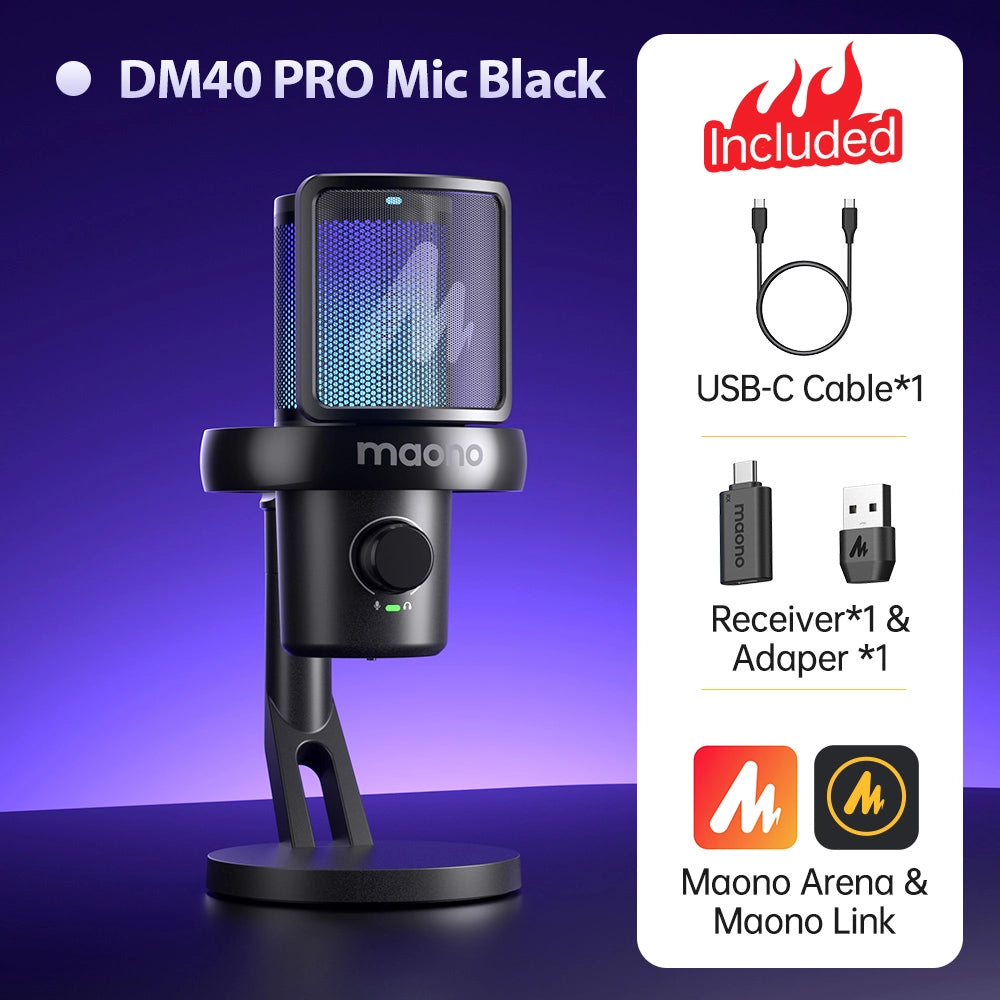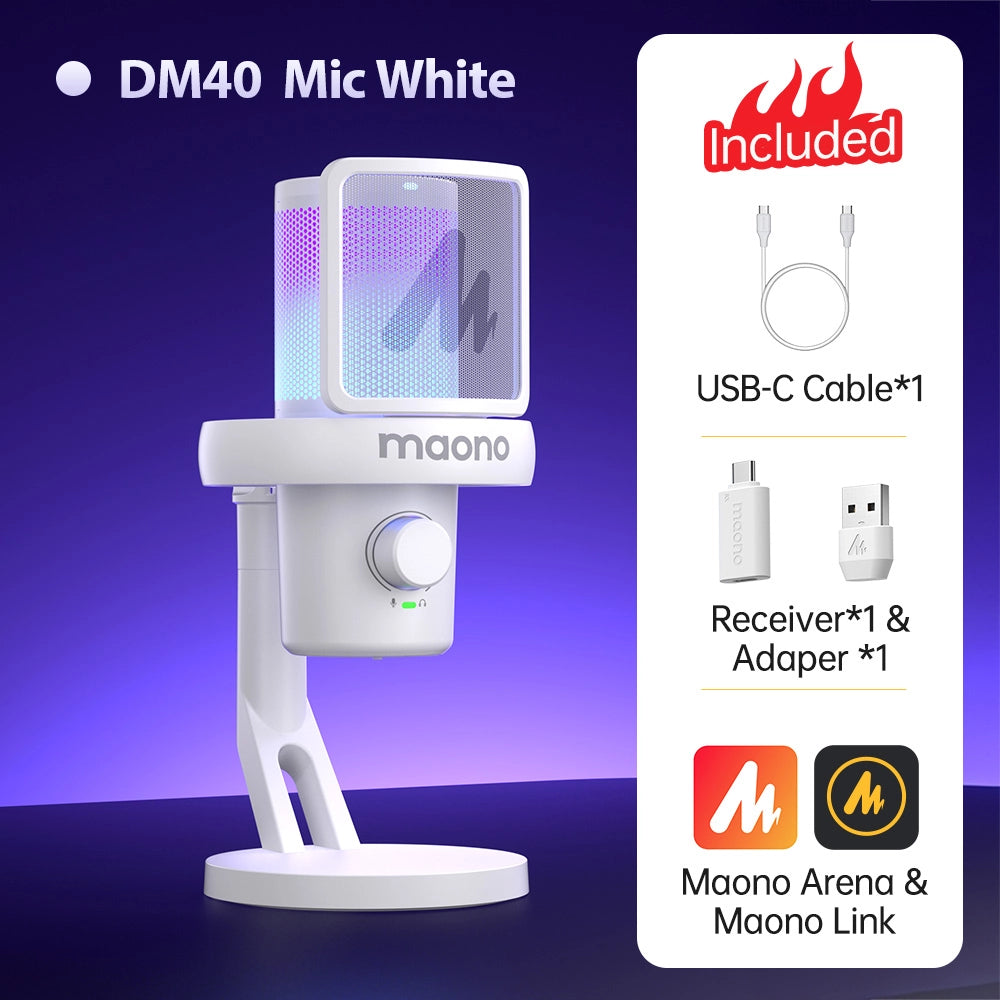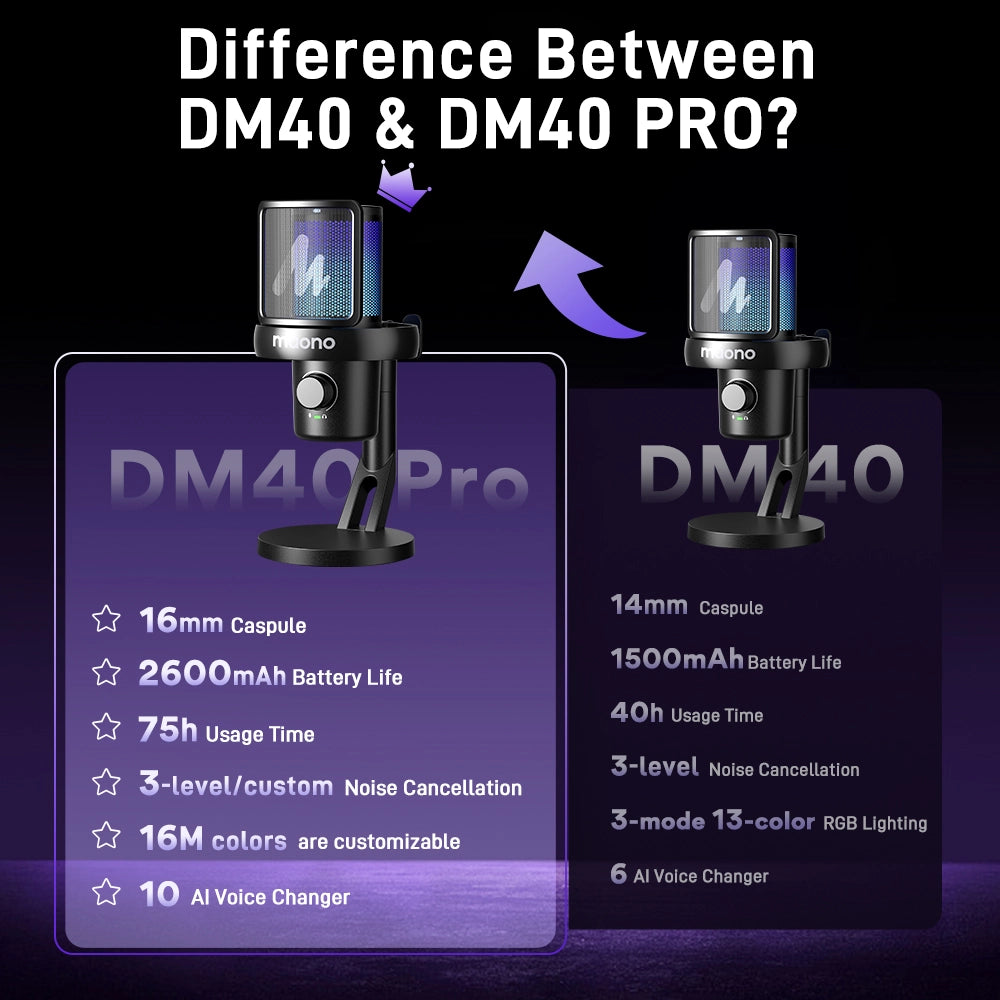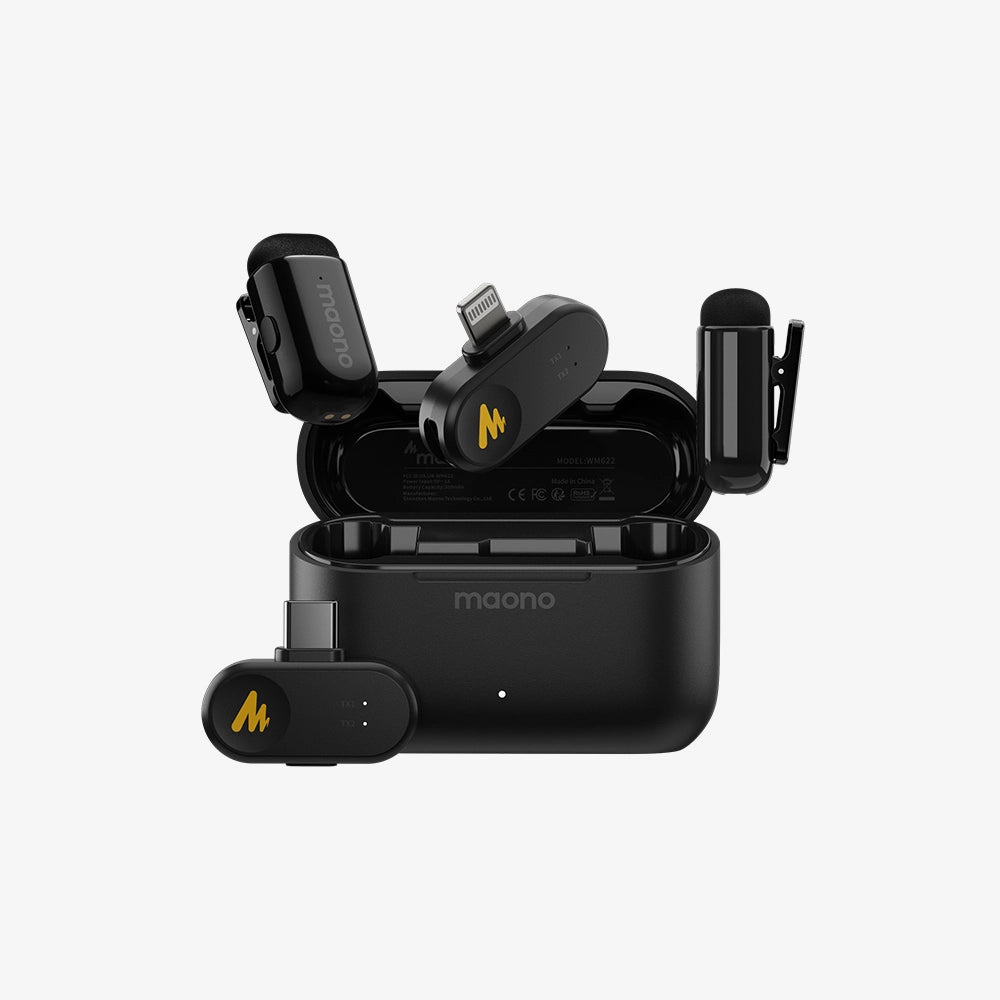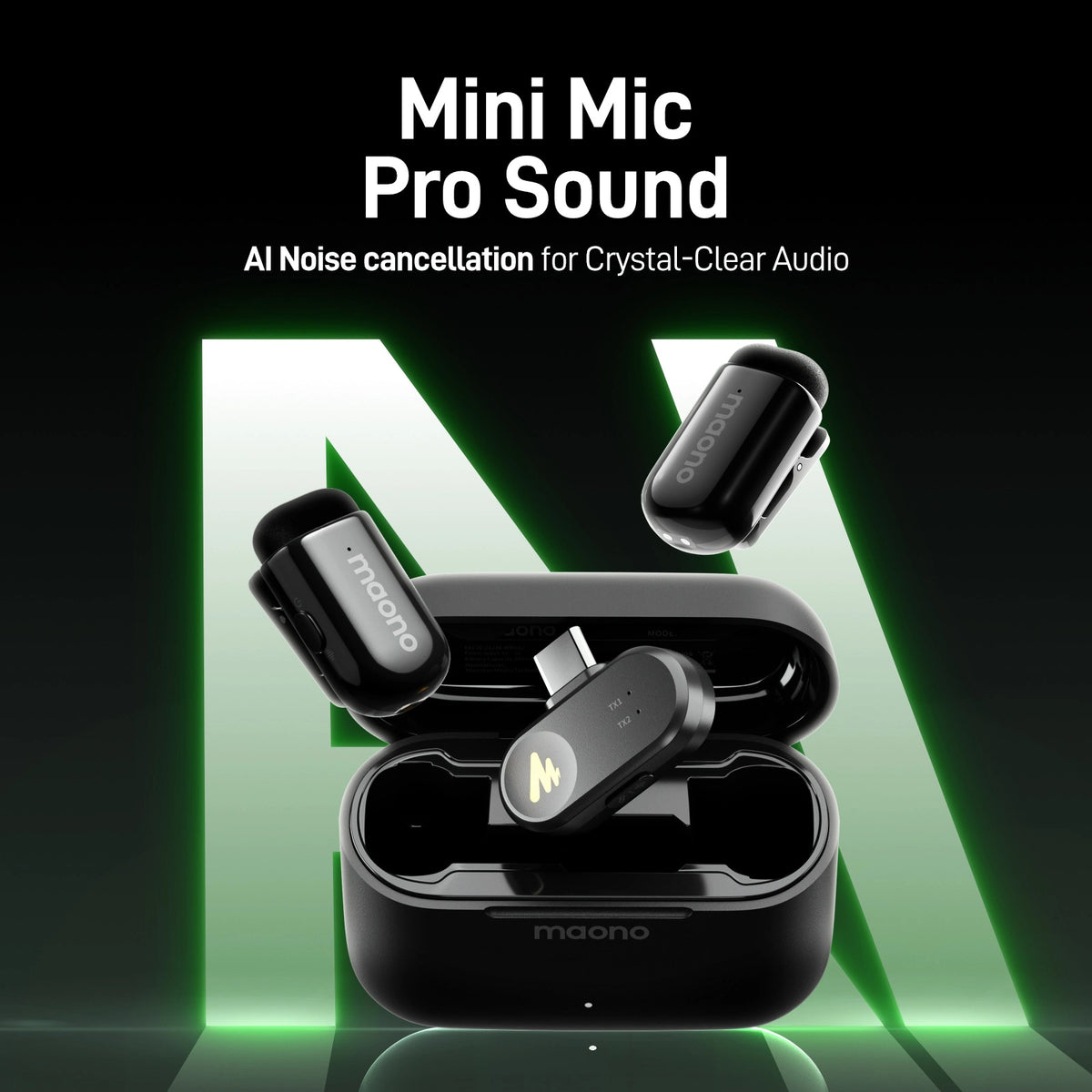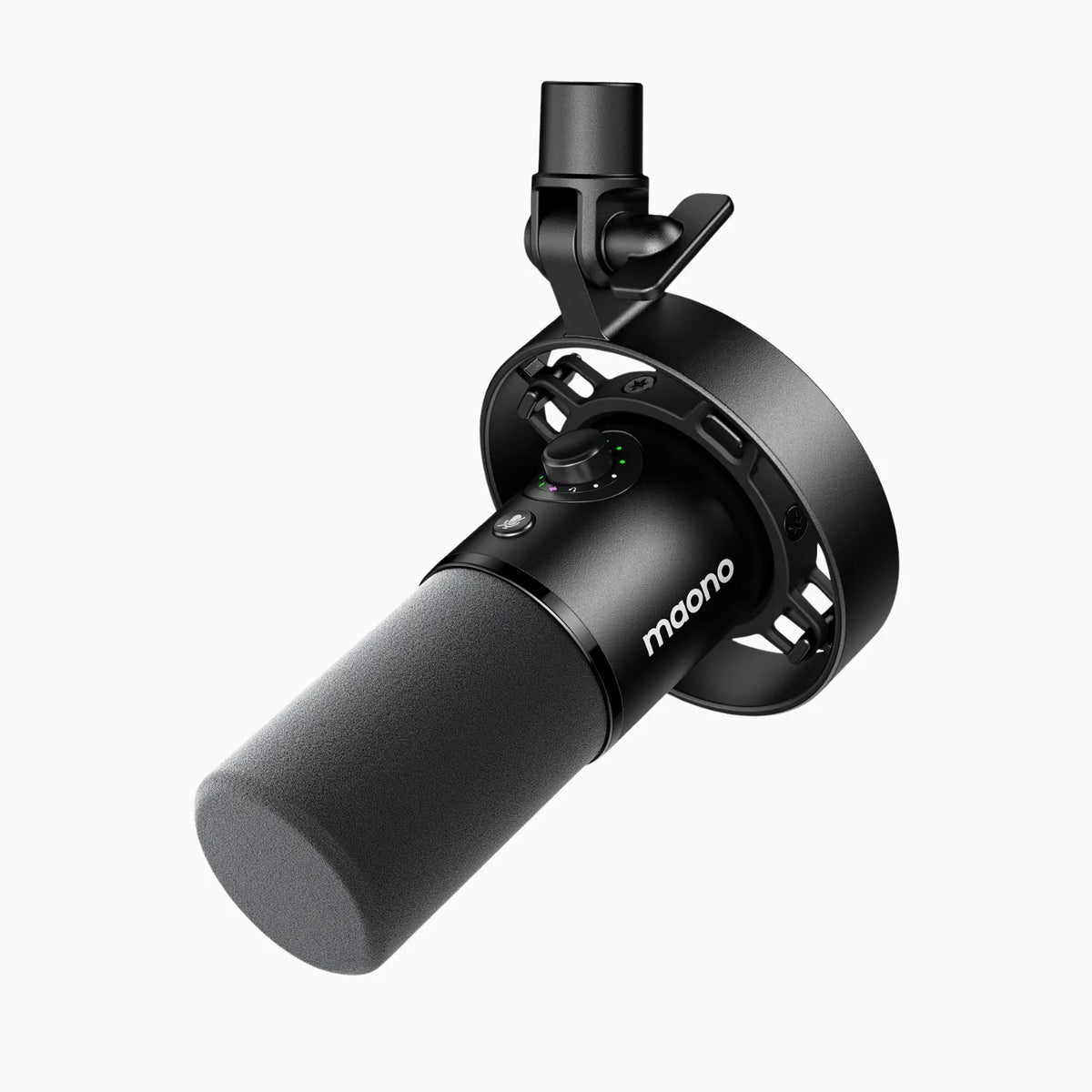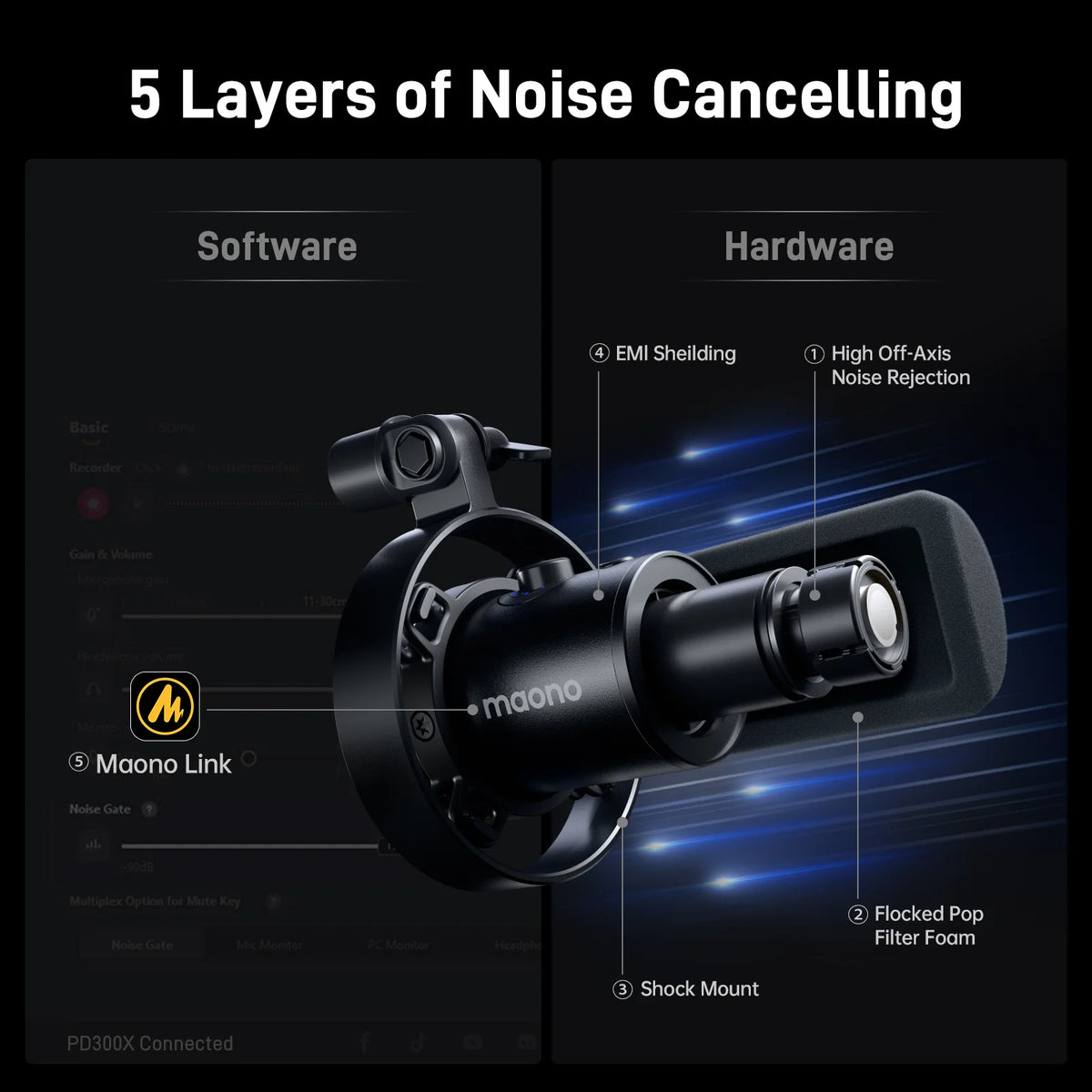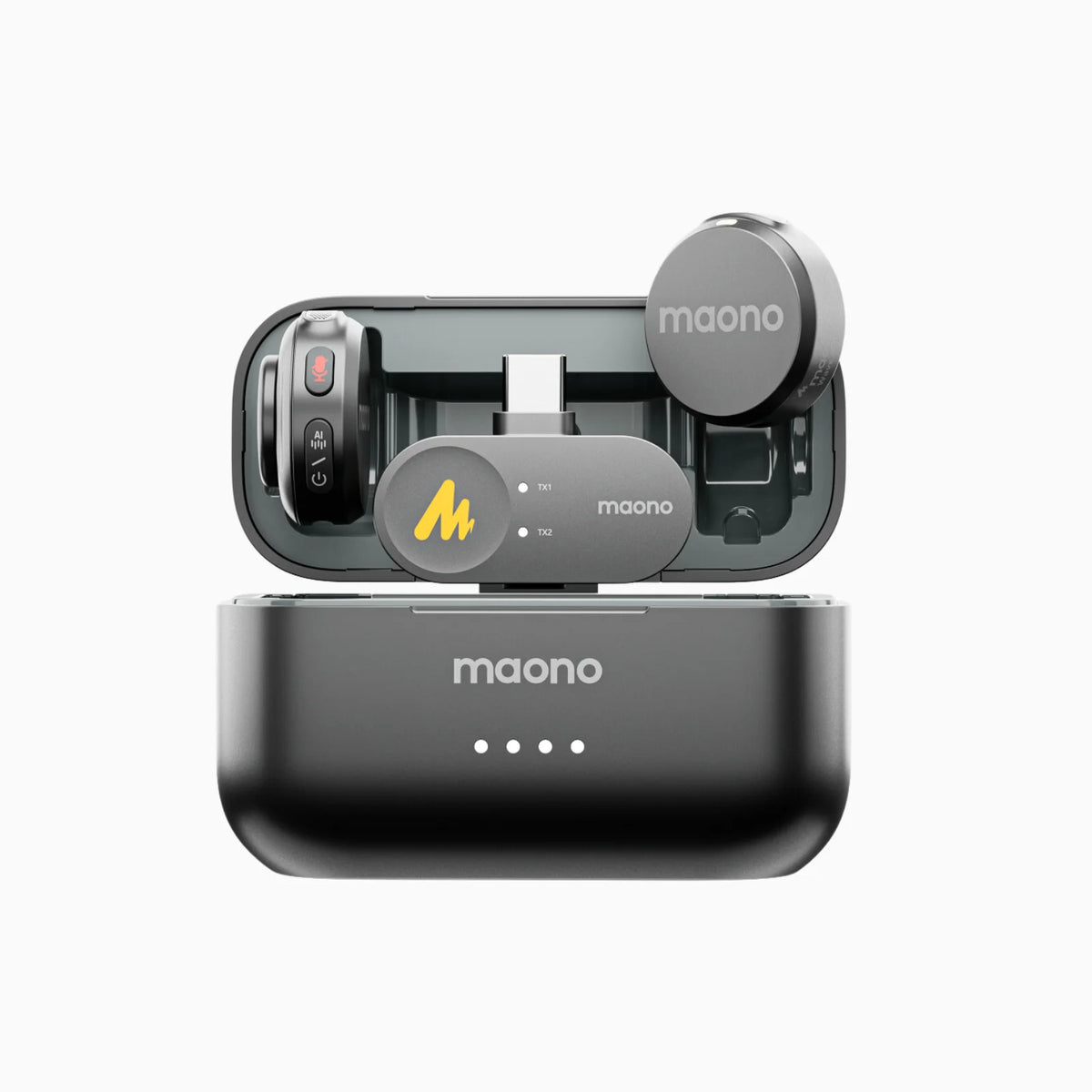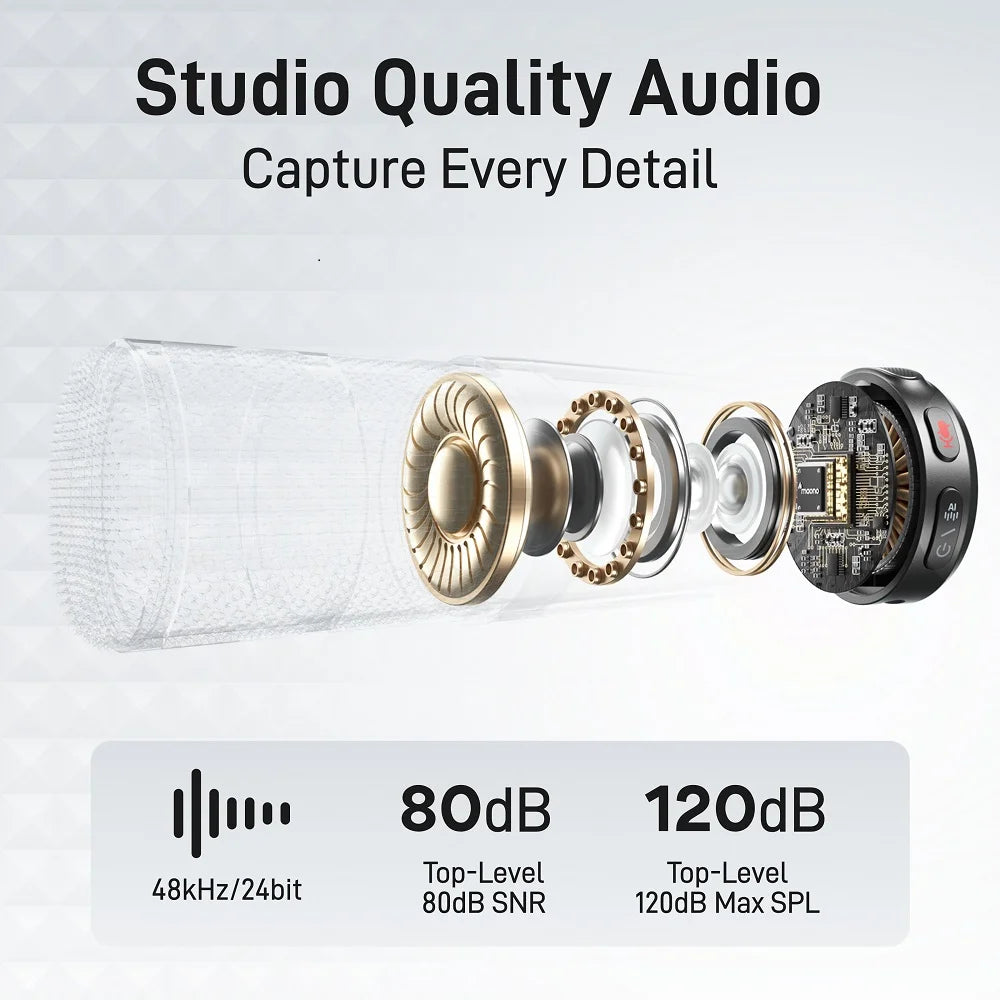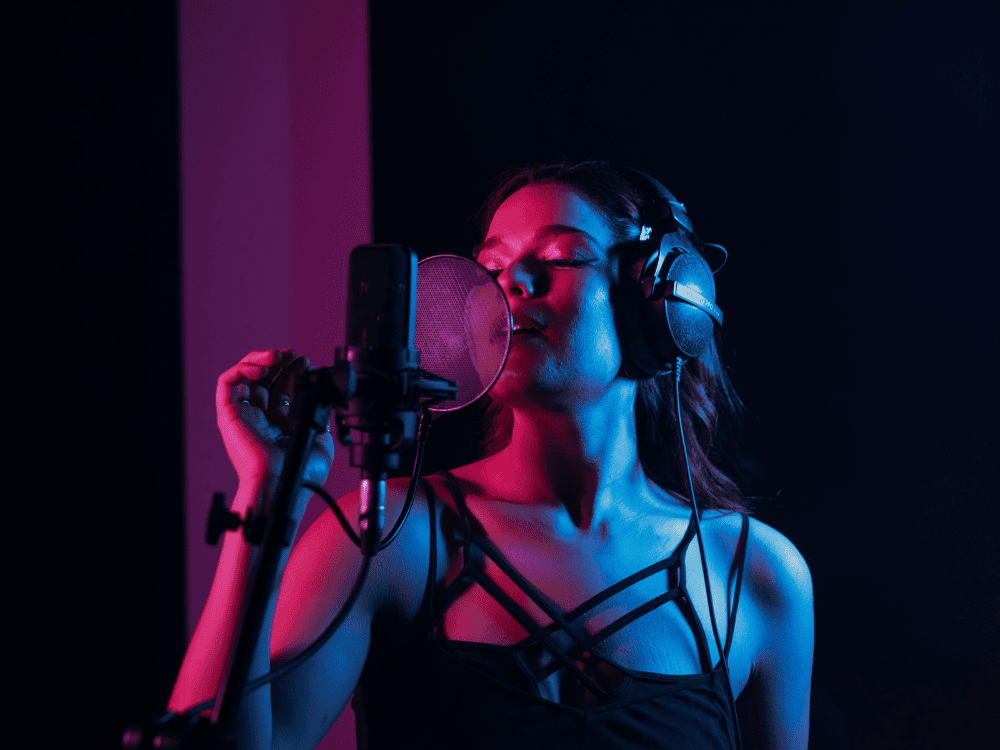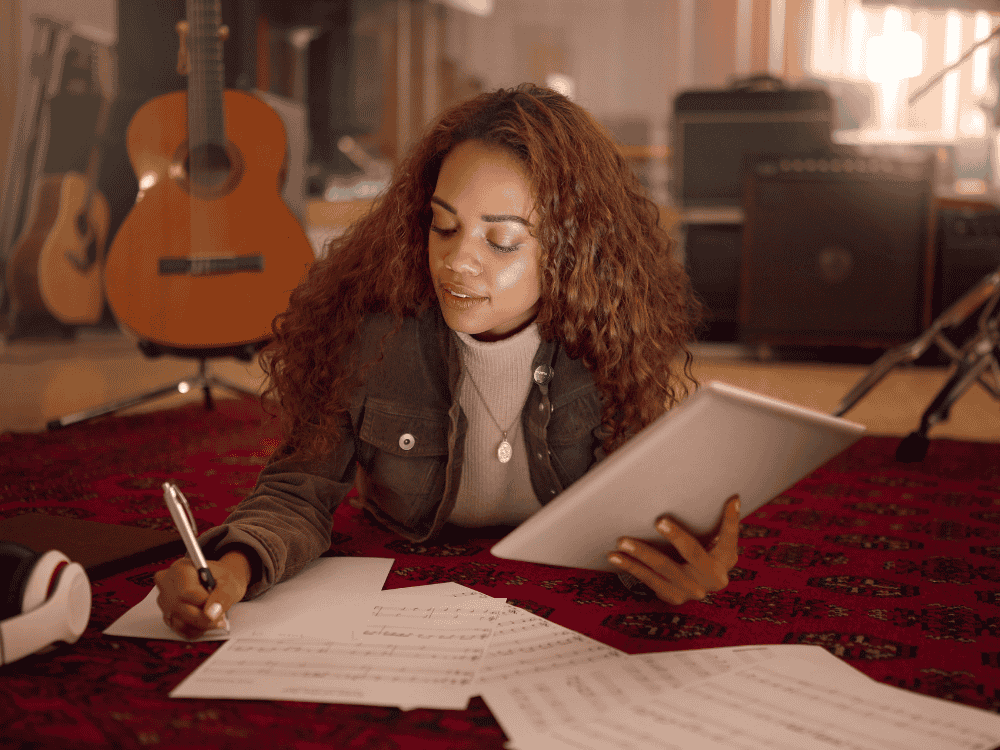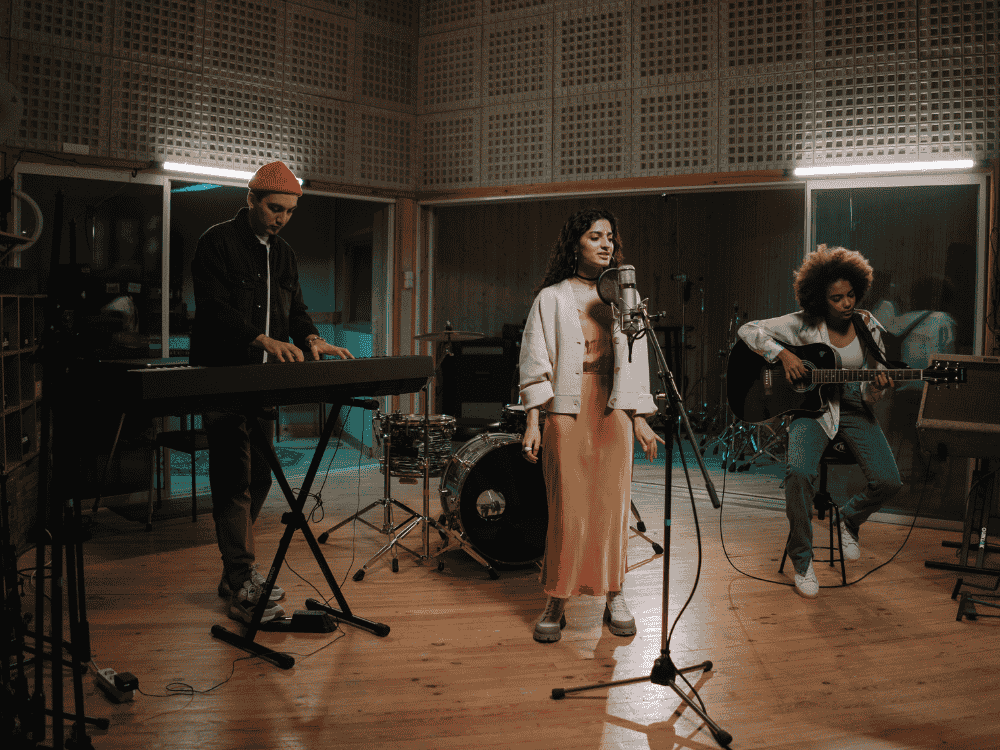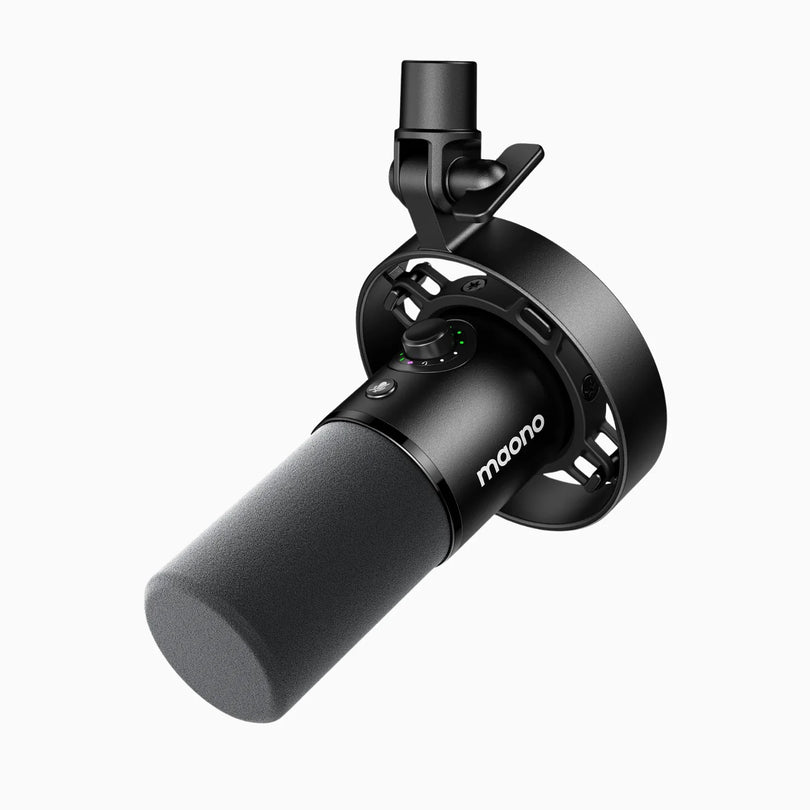Have you been writing songs for a while and you're aiming to record your singing at home but you don't know what type of recording microphone you should buy? Whether you're a podcaster, content creator, or musician, choosing the best recording microphone can have a big impact on the quality of your audio. Finding the ideal solution that fits your goals and budget might be difficult with so many to choose from.
In this article, we will walk you through some of the top recording microphones for singing for 2024.
The Best Mic for YouTube Singing
1. Shure SM57
The best industry-standard dynamic microphone
Specifications
Type: Dynamic
Pickup Pattern: Cardioid
Frequency Response: 40 Hz - 15 kHz
Connection: XLR
Reasons to Buy:
✅ Sturdy and reliable
Reasons to Avoid:
❌ It may not capture the most subtle sound of instruments
Buy If: You want to capture loud sound sources
Estimate Cost: $74.99-$100
Description:
Shure SM57 is a workhorse microphone with decades of dependable performance that has earned its spot in the industry. It is the preferred option for live sound and recording applications due to its sturdy build and precise, well-defined sound. The SM57 is a reliable choice whether you're trying to capture the snap of a snare drum, mike up a loud guitar amplifier, or make sure your brass section sounds bright, powerful, and exceptional–it captures natural and clear sound.
The Shure SM57 is a great choice for anyone wishing to expand their collection of high-quality, resilient, and adaptable recording microphones. It will continue to function effectively and produce high-quality sound in a variety of audio situations–suitable for live sound concert settings and even in home studios. Its versatility is the number one reason why it’s most preferred by musicians, audio engineers, and broadcasters.
2. Sontronics STC-2
The best XLR mic for vocals
Specifications:
Type: Condenser
Application: Vocals, instruments
Connection: XLR
Powered: Yes
Reasons to Buy:
✅ Excellent clarity for vocals and instruments
Reasons to Avoid:
❌ Requires phantom power
❌ Expensive
Buy If: Money is not an issue
Estimate Cost: $200-$350
Description:
Sontronics STC-2 is a premium condenser recording microphone that provides a crisp, clear, and precise sound. It produces a natural and balanced audio capture, making it ideal for vocal and instrumental recordings.
3. IK Multimedia iRig Stream Mic Pro
The best versatile USB mic
Specifications:
Type: Condenser
Connectivity: USB
Pickup Pattern: Cardioid
Accessories: Integrated audio interface
Reasons to Buy:
✅ Versatile and portable
✅ Built-in audio interface
Reasons to Avoid:
❌ Limited to USB connectivity
Buy If: You prefer easy setup, plug-and-play mic
Estimate Cost: $129.99-$169.99
Description:
The IK Multimedia iRig Stream Mic Pro is an ideal all-in-one solution for multimedia creators on the go. It is perfect for simple music recording, and also suitable for streaming and podcasting because it is user-friendly and has good sound quality.
4. Maono PM500
The best XLR mic with superb sound capture
Specifications:
Type: Condenser
Connectivity: XLR
Pickup Pattern: Cardioid
Frequency Response: 20Hz - 20KHz
Application: Vocals, instruments
Reasons to Buy:
✅ Exceptional sound capture
Reasons to Avoid:
❌ You need a phantom power supply
Buy If: you’re willing to purchase an audio interface
Estimate Cost: $149.99
Description:
It's a high-quality XLR condenser microphone named IDA 2022 Honorees (International Design Awards). Renowned for its professional audio quality and easy sound capture, PM500 is perfect for recording vocals, percussions, and stringed instruments. Its cardioid pickup pattern can reduce the background noise, producing a rich, clear, and smooth sound.
5. Maono PM422
The best, user-friendly USB mic
Specifications:
Type: Condenser
Connectivity: USB A to B Cable
Pickup Pattern: Cardioid
Frequency Response: 20Hz – 20kHz
Accessories: boom arm, windscreen, pop filter, headphone
Reasons to Buy:
Complete set
One-touch mute button
Reasons to Avoid:
❌ Limited to USB connectivity
Buy If: You prefer easy setup, plug-and-play mic
Estimate Cost: $119.99
Description:
Maono PM422 recording mic is favored by musicians, streamers, and content creators due to its professional sound. It offers adjustable mic gain and accessories like a boom arm, windscreen, and pop filter to enhance your overall recording experience, eliminating plosives and protecting the mic from saliva interference.
6. Maono AU-A04
The best mic for YouTube singing
Specifications:
Type: Condenser
Connectivity: USB
Pickup Pattern: Cardioid
Frequency Response: 30Hz-16kHz
Accessories: sturdy boom arm set, pop filter, foam windscreen, shock mount
Reasons to Buy:
✅ Strong output
✅ No distortion
✅ Low power consumption
Reasons to Avoid:
❌ OTG adapter not included (if you wish to use your iPhone for recording)
Buy If: You prefer easy setup, plug-and-play mic with accessories
Estimate Cost: $54.90-$79.99
Description:
A04 is a cardioid condenser recording microphone that offers a smooth, professional sound with a flat frequency response of 30Hz-16kHz, making it perfect for YouTube singing or creating video, reproducing sound, and voice-overs. It captures clear sound while reducing background noise, and it's easy to setup and install, it can also be connected to your iPhone (but you will need an OTG adapter).
7. Rode NT1 5th Gen Microphone
The best dual connectivity condenser mic
Specifications:
Type: Condenser
Application: Vocals, instruments
Connection: XLR, USB-C
Powered: No
Reasons to Buy:
✅ Excellent sound quality
✅ Dual connectivity (XLR and USB-C)
Reasons to Avoid:
❌ No built-in controls
Buy If:
Estimate Cost: $249-$399
Description:
The Rode NT1 5th Gen is an outstanding condenser microphone with excellent audio quality and is accessible at a reasonable price. The Rode NT1 5th Gen may be used for both home and professional recording studio setups, due to its bidirectional polar pattern.
8. Aston Microphones Origin
The best stylish, budget-friendly condenser mic
Specifications:
Type: Condenser
Application: Vocals, instruments
Pickup Pattern: Cardioid
Frequency Response: 20 Hz-20 kHz
Connection: XLR
Reasons to Buy:
✅ Affordable with professional quality
✅ Unique, durable, stylish design
Reasons to Avoid:
❌ Requires phantom power
❌ No pop filter
Buy If: you need a mic for vocals and instruments
Estimate Cost: $199.99-$379
Description:
The Aston Origin is a stylish and high-performing condenser microphone at a reasonable price point. Its cardioid pattern and detailed audio capture make it a great choice for both vocals and instruments.

Best Microphones for Recording: Tips and Buying Advice
How to Choose A Microphone for Singing
When choosing a microphone for singing, consider the following factors:
Type: Choose between ribbon, condenser, and dynamic recording microphones according to what you need to record.
Polar Patterns: Recognize the various polar patterns (omnidirectional, cardioid, super cardioid, figure-8) and select the one that works best for the conditions of your recording environment.
Connection: XLR microphones are the industry standard for professional setups and offer superior audio quality, but USB microphones are more handy for direct-to-computer recording.
Flat or Colored Sound: Choose a microphone that adds individuality to your recordings or one that produces a flat, neutral sound.
Pop Filter: The use of a pop filter lessens plosive sounds. While some microphones have filters built in, some could need an additional one.
Budget: Find the best microphone within your budget by deciding how much you are willing to spend.
Specific Use/Purpose: If you're planning to record voice, instruments, or podcasts, think about what you'll be recording before selecting a microphone.
Studio Setup: Think about how the new microphone will work with your current studio setup (if you already have one).
How Do Microphones Work?
Sound waves are converted into electrical impulses by microphones. Condenser microphones use a diaphragm that forms a capacitor with a backplate and requires an external power source (phantom power), whereas dynamic microphones use a diaphragm linked to a coil that moves within a magnetic field. Ribbon microphones generate a signal by suspending a thin metal ribbon in a magnetic field.
What's the Difference Between Dynamic, Condenser, and Ribbon Mics?
Dynamic microphones are strong, suitable for high SPLs, and perfect for loud instruments and live sound.
Condenser microphones: superior in sensitivity and accuracy, ideal for recording vocalists and acoustic instruments in a studio–these mics are more sensitive than the dynamic mics.
Ribbon Mics: More delicate, but smooth and natural sounding; frequently used for vocals and some instruments.
Understanding Polar Patterns
- Omnidirectional: Equally records sound coming from any angle.
- Cardioid: Reduces background noise by capturing sound mainly from the front.
- Super cardioid: A cardioid's pickup angle is broader than its counterpart's.
- Figure 8: Good for stereo recordings, this device records sound from both the front and the back.
Understanding USB and XLR Connections
USB microphones are simple to use, plug and play, and ideal for transportable recording setups and novices alike.
Higher-quality microphones with XLR connectors are used in professional studios; they require an audio interface or mixer.
How Much Should I Spend on a Recording Microphone?
Your alternatives will mostly depend on your budget. For beginners, entry-level microphones under $200 can offer decent quality. Better sound and build quality can be found in mid-range microphones ($201–400). High-end microphones, which offer better audio for usage in the workplace, can cost over $400.
More FAQs
- What are the characteristics of a good-quality home studio microphone ideal for vocal recording?
A good-quality microphone should offer clear and accurate sound, have a suitable polar pattern for your recording environment, and fit within your budget.
- How do I select a home studio microphone that's perfect for my needs?
Think about the budget, sound quality, polar pattern, and kind of microphone. Make sure it fits the purpose and recording setup you have in mind.
- Which is the best microphone for vocals for beginners?
For beginners, investing in a microphone could be a challenge. If it’s your first microphone, the microphone price for singing doesn’t have to be super expensive to record your voice.
The A04 is a great choice for starters because it’s very affordable and it records with professional sound quality.
- What is phantom power? Do all microphones need it?
Phantom power is a method of providing power to condenser microphones through the XLR cable. Not all microphones need it; dynamic microphones do not require phantom power, while condenser microphones do.
Conclusion
Picking the right microphone for recording depends on what you need and how much you want to spend. Whether you're just starting out or are a seasoned professional vocalist, there's a mic that will suit your needs. From tough dynamic mics to flexible condenser mics, choosing the right one will improve your recordings and help you get the best sound.


